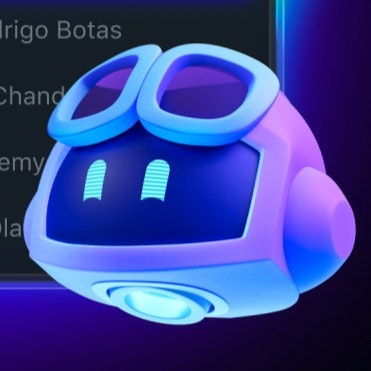Product Introduction
- GitHub Copilot Coding Agent is an AI-powered feature integrated into GitHub that automates coding tasks by implementing issues or executing commands through GitHub Actions. It operates autonomously in the background, generates code changes, and submits its work as draft pull requests for review. The agent leverages advanced models and GitHub’s ecosystem to streamline development workflows while adhering to security and compliance policies.
- The core value of GitHub Copilot Coding Agent lies in its ability to handle low-to-medium complexity coding tasks, freeing developers to focus on high-impact work. It reduces manual effort by automating repetitive coding, testing, and documentation tasks while maintaining alignment with project standards through integration with GitHub’s native tools like pull requests and Actions.
Main Features
- The agent automatically processes tasks assigned via GitHub issues or direct prompts in supported IDEs like VS Code, initiating background execution through GitHub Actions. It clones repositories, analyzes codebases using retrieval-augmented generation (RAG) powered by GitHub code search, and iteratively pushes commits to draft pull requests with detailed session logs for transparency.
- It integrates with Model Context Protocol (MCP) to access external data sources and APIs, enabling context-aware code generation. Administrators can configure custom MCP servers or use GitHub’s official server to extend the agent’s capabilities while maintaining control over data access.
- Security is enforced through branch protection rules, mandatory human approval for CI/CD workflows, and restricted internet access limited to predefined trusted endpoints. The agent operates in isolated GitHub Actions environments, ensuring compliance with organizational policies and preventing unauthorized changes to protected branches.
Problems Solved
- The agent addresses the inefficiency of manual coding for routine tasks like bug fixes, test expansion, and documentation updates. It eliminates context-switching by handling these tasks autonomously, allowing developers to concentrate on complex problem-solving and innovation.
- It targets software development teams and enterprise engineering groups managing large, well-tested codebases. Organizations using GitHub Actions for CI/CD benefit from seamless integration, while individual developers gain productivity boosts through automated code generation.
- Typical use cases include refactoring legacy code, implementing feature requests described in issues, resolving bugs reported with screenshots (processed via vision models), and improving test coverage. For example, a developer can assign an issue with a UI mockup image, and the agent generates corresponding frontend code.
Unique Advantages
- Unlike standalone AI coding tools, GitHub Copilot Coding Agent is deeply integrated with GitHub’s native workflows, including Issues, Actions, and Pull Requests. This ensures compatibility with existing development pipelines and reduces setup complexity compared to third-party solutions requiring separate infrastructure.
- Its use of vision models to process visual inputs in issues and MCP for contextual data retrieval distinguishes it from code completion-focused tools. The agent can interpret screenshots or diagrams attached to issues, enabling multimodal task understanding unmatched by text-only systems.
- Competitive advantages include zero-configuration GitHub Actions integration, enterprise-grade security controls, and consumption-based billing aligned with existing Copilot plans. The agent’s ability to follow repository-specific rulesets and organizational policies ensures compliance without requiring custom scripting.
Frequently Asked Questions (FAQ)
- Which GitHub Copilot plans include access to the coding agent? The coding agent is available exclusively for Copilot Enterprise and Copilot Pro+ subscribers. Enterprise administrators must enable the feature at the organization level, while Pro+ users can activate it per repository through GitHub’s settings.
- How does the agent ensure code quality and security? All changes are submitted as draft pull requests requiring human approval before merging. The agent adheres to branch protection rules, cannot modify protected branches directly, and runs in sandboxed GitHub Actions environments with restricted network access to minimize risks.
- Which IDEs support initiating agent tasks? Developers can trigger the agent from VS Code, JetBrains IDEs, Visual Studio, Xcode, and Eclipse via Copilot Chat. Task monitoring and review are available across GitHub’s web interface, mobile app, and CLI tools for cross-platform accessibility.
- Can the agent access private APIs or internal documentation? Yes, through MCP servers configured in repository settings. Organizations can deploy private MCP servers to provide internal context while maintaining data governance, with GitHub offering an official MCP server for GitHub-specific data integration.
- How will billing change after June 4, 2025? Starting June 4, 2025, each agent operation consumes one premium request per model interaction, aligning with existing Copilot usage metrics. Enterprise customers receive dedicated request quotas, while Pro+ users can monitor usage via the GitHub Copilot dashboard.
